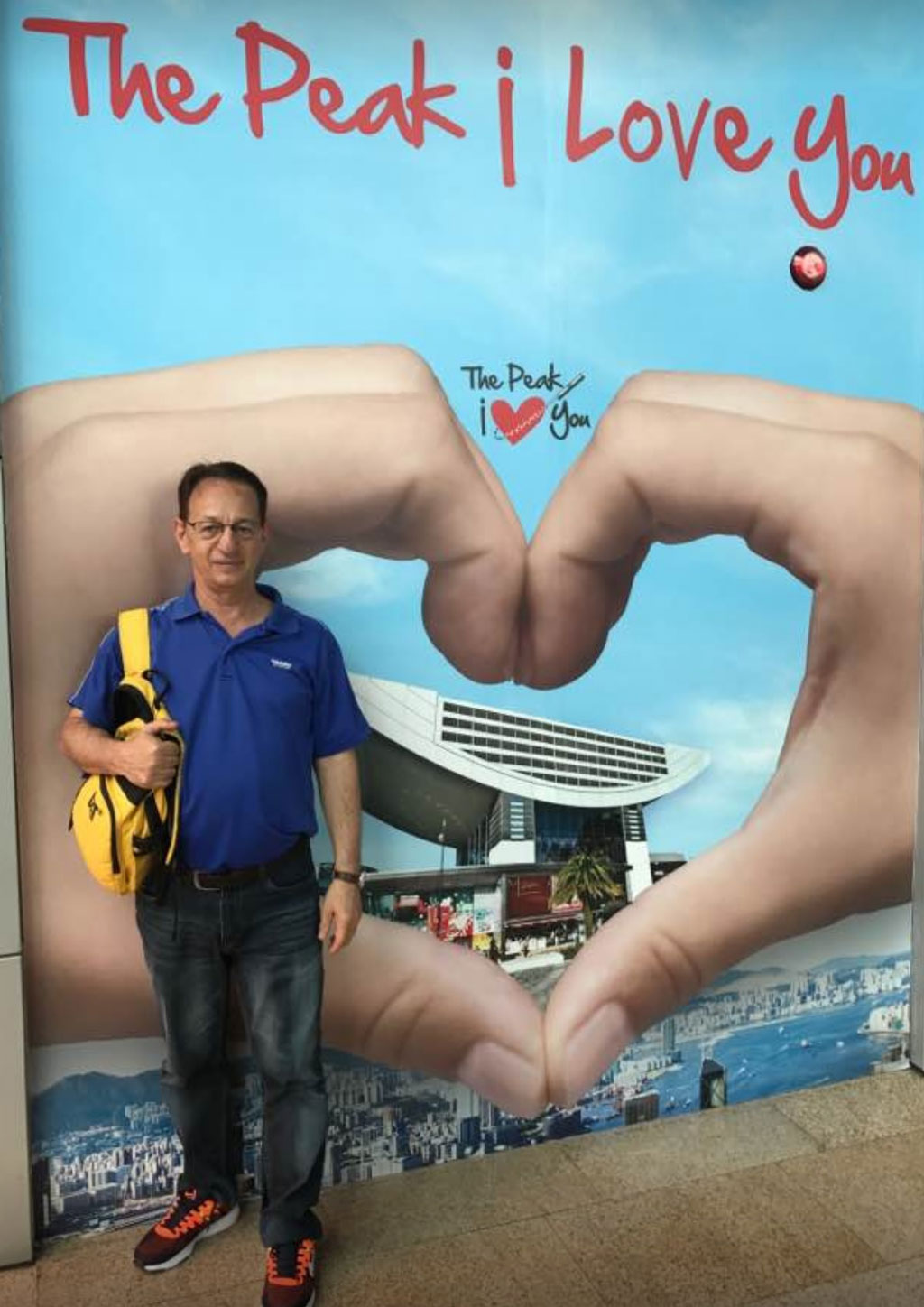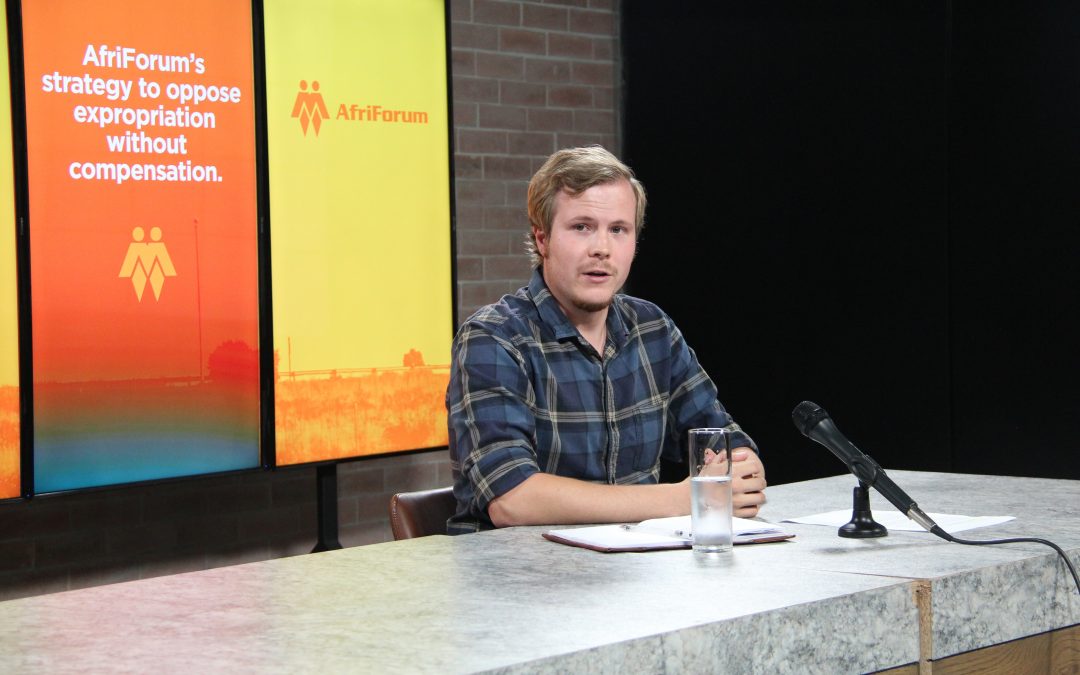Out and about is the column where we chat to people who live or have lived and worked abroad. This week, we chat to Dr Henni Appelgryn, who has been living in China for more than ten years.
Tell us more about yourself and your life in China?
Maybe I should turn back the time. I never completed my school career; my parents were not the richest and I had to leave school after Standard 8 (Grade 10). I started working at Sappi in Springs and realised that I would work there forever if I went through live only with Standard 8. I then decided to get more out of life. I really wanted to study electronics, but it required a matric certificate (Grade 12). I then attended evening classes at a technical college and completed a technical matric. It wasn’t easy working during the day and attending evening classes. I realised, however, that I would have to persevere. Eventually, I started studying electronics and later started working at an IT company. I was a computer technician and learned many things. Then one day, I heard that the company wanted to send someone to university to complete a basic management course.
The requirement was that the person would have to pass; if not, the company would reclaim the costs from the person. I couldn’t believe that no one had shown interest, and I then offered to go. Once again, it meant working through the day and attending evening classes. I had a hard time because it wasn’t easy, there were different subjects and the university required a high standard of work. I was a single parent then, with a child in primary school. Every evening after my son went to bed at 20:00, I started studying. I struggled to pass accounting, as the standards were very high and not even my bookkeeper could help me. But I realised I couldn’t fail – I had to write the accounting exam three times before passing it.
I was then promoted to Area Manager for the Free State. Although I decided to attend a follow-up course, the company declined to pay. I then decided to fund the studies myself. The course was once again very difficult. About two years later, the company decided to withdraw from South Africa. I was forced to start my own company as I was unable to get employment as a result of BEE. One day, as I passed the University, I decided to go in. I then noticed that the course that I had completed would allow me to enrol for an MBA, which I was very excited to do. However, there was one problem: It cost a lot of money and my business struggled. I then approached the university to find out if I could pay off my class fees, which they accepted. I enrolled and the studies started. I still remember the days I had to get up at 04:00 to start studying. And once again accounting proved to be quite a challenge – I could still study for the other subjects, but accounting one has to understand; and as I didn’t have an accounting background, I suffered quite a bit.
For the last part, I had to submit a research project of about 20 000 pages. I was busy with the final report when an armed robbery took place in my flat. For weeks on end I struggled to sleep or concentrate and informed the University that I was terminating my studies.
I travelled to China and Hong Kong for a few times to attend exhibitions as well as sourcing products to import to South Africa. I once went to Chongqing, where I walked past a company that offered English. Curiosity compelled me to enter and find out if I could apply for work. They were so excited that I couldn’t believe my ears. On the plane back I sat there, thinking that I should send my CV to universities, which I then did. I couldn’t believe the reaction – I had sent my CV to about 30 universities, and more than 10 replied with job offers! I then decided to accept the offer of a university in Wuxi, China, where I would have to lecture commercial subjects. I only worked for 12 hours a week and had much time available. For this reason, I decided to complete my MBA, which I managed to do a year later. I never could attend a graduation ceremony, and this was once again the case with the MBA. I received my degree certificate in the post, which excited me a lot.
When I once again realised that 12 hours a week weren’t enough to keep my occupied and I was terribly bored. I then decided to establish a Chinese company to import goods from South Africa. I started gathering information on how to go about it and what it would cost. As it was very expensive to use agents to establish the company, I decided to do it myself. Many people told me it was impossible as I needed almost 30 certificates to trade legally. And because I could not speak Chinese, it would have been very difficult to communicate with the people from the different departments. But not even that could stop me. I had lots of fun with the Chinese civil servants, because we laughed a lot when we couldn’t understand one another. Some people in the queue sometimes even interpreted or someone from another department was called in to help. A year later I had all the necessary certificates and I could start. I imported grape seed oil, but this was the start of quite another battle: I had to speak to people in supermarkets who could not speak a word of English. The company wasn’t too successful, but I forged ahead.
I then started studying for a doctorate and enrolled at a Swiss university. Six years later, I completed a doctorate in business administration (DBA) and even obtained a second doctorate of philosophy in business administration (PhD) as it corresponded with another programme.
What do you do there?
Currently, I lecture entrepreneurship and marketing at the United International College, co-founded by the Beijing Normal University and the Hong Kong Baptist University. Here I lecture for 9 hours a week. The town’s name is Zhuhai and is very close to Hong Kong, Shenzhen and Macao. The graduation ceremonies are held in Hong Kong, and students obtain their degrees from the Hong Kong Baptist University. Before that, I lectured for a year at the Nottingham University in Ningbo.
I have a GPS system and company in South Africa which monitors people and company cars. I buy the GPS units here and export these to South Africa. I have also export many goods: from machines to drug abuse tests. I use my Hong Kong company for exports as the Chinese company focuses on food.
Was it difficult to adjust to another company, or was it easy to find your feet?
I was single and it was exciting to come here. There were many weird and foreign things, but, as I always say: I cannot expect 1,5 billion people to change; it is easier for me to adjust.
What do you miss the most of South Africa?
I don’t think there is much that I miss; I like braaivleis, but I can do it here, too. Maybe the togetherness of braaivleis and rugby. The food here is different, but I believe that if you are hungry, any food will do. I must admit: When I am in South Africa, I miss China. The country is unbelievable if you consider its infrastructure. I once boarded a train that travelled at 300 km/h! I don’t even own a car here, because no one really needs one as you can travel to wherever without much trouble. Then again: who wants to travel by car if you can travel to another city in a train reaching 200 km/h?
How did emigration affect you?
The language was a difficult challenge, but I can help myself with technology and hand signals; I can find stuff in shops on my own, after all! I have a work permit in China and think about getting a green card – it is now easier than before.
What do you enjoy the most of living in China?
The safety. In the more than ten years that I have been living here, I never encountered a dangerous situation. The people are very tolerant. I think it is a prerequisite because there are so many people here and you have to be patient. I always tell other people to return a country where you feel more confident is you cannot accept this.
The students are unbelievable; respect is part of their culture.
Are there many South Africans in China? Do you sometimes get together?
There are a few South Africans. At my university, there is a professor from the Cape. He has been here for a few years already. And Byron who was here in the city, but has since moved to Beijing. I think everyone does their own thing.
Do you find the time to travel?
I have been to many cities and they are interesting; there are so many thing to see here! I must also admit that I am a city slicker: I enjoy large cities, as there are many things and people to see.
Do you still have contact with South Africa and would you ever return?
My son is now in England and I have two brothers in South Africa. I have a few friends there, but we communicate via WhatsApp.
If it was up to me, I would never return to South Africa. But then again: one never knows what the future holds.









